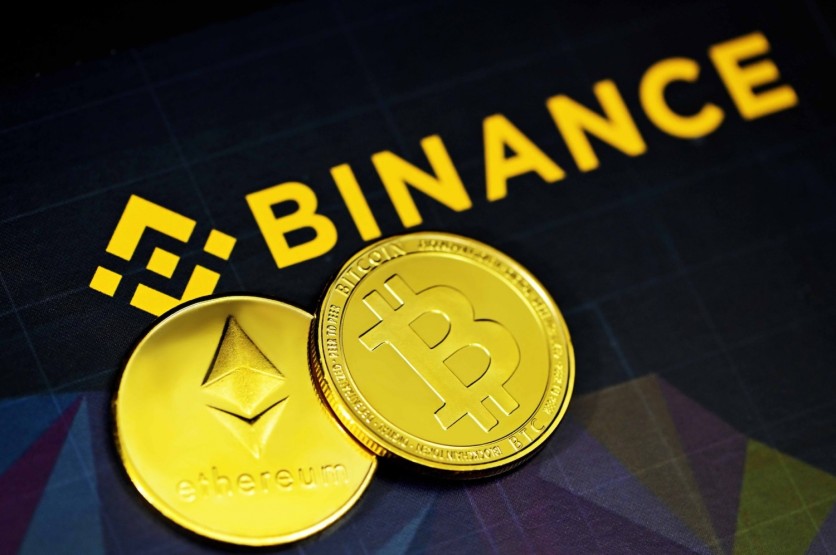
The emergence of Binance USD (BUSD) and the growing popularity of stablecoins have raised important questions about financial privacy and anonymity. In this article, we delve into the implications and anonymity of Binance USD on these crucial aspects. World has taken the potential opportunities by both hands and why are you stopping yourself? Start trading in bitcoins using online trading platforms like Immediate Alpha that can help you get started easily!
The Impact of Binance USD on Financial Privacy
Binance USD (BUSD) has brought about significant changes in the realm of financial privacy, sparking discussions and concerns among users and regulators alike. One key aspect to consider is the transparency of BUSD transactions. Unlike traditional cryptocurrencies like Bitcoin, BUSD is designed as a stablecoin, pegged to the value of the US dollar. This means that BUSD transactions can be traced and verified on the blockchain, allowing for a higher level of transparency.
While transparency can be seen as a positive attribute for financial systems, it also raises privacy concerns. The traceability of BUSD transactions means that individuals' financial activities can potentially be monitored and analyzed. This can be a cause for worry for those who value their privacy and wish to keep their financial transactions confidential.
Moreover, the transparency of BUSD transactions can lead to risks and vulnerabilities. If a person's BUSD wallet address becomes associated with their real-world identity, all their past and future transactions can be linked together. This creates a comprehensive profile of an individual's financial activities, which can be exploited by malicious actors or even used by governments for surveillance purposes.
The impact of BUSD on financial privacy is also influenced by the regulatory landscape. As stablecoins gain more prominence, regulatory frameworks are being developed to ensure compliance and mitigate risks. However, these regulations often require the collection and sharing of transactional information, potentially compromising financial privacy. Striking a balance between regulatory compliance and preserving individual privacy becomes a challenging task.
It's important to note that Binance, the exchange behind BUSD, has implemented Know Your Customer (KYC) procedures, which require users to provide personal information for verification. This further blur the line between financial privacy and compliance, as the exchange may have access to detailed user data. While KYC measures aim to prevent illicit activities and promote security, they also raise concerns about the privacy and security of personal information.
Anonymity in the Age of Binance USD
One of the primary challenges lies in the traceability of BUSD transactions on the blockchain. Unlike privacy-focused cryptocurrencies that utilize advanced cryptographic techniques to obfuscate transaction details, BUSD transactions can be tracked and verified. Each transaction leaves a digital trail, including wallet addresses and transaction amounts, which can potentially be linked to real-world identities.
To maintain anonymity in the age of Binance USD, users must take additional precautions. One strategy is to employ techniques such as coin mixing or tumbling. These processes involve mixing BUSD funds with those of other users, making it more difficult to trace the original source of the funds. By creating a complex web of transactions, the connection between sender and recipient becomes blurred, enhancing anonymity.
Another consideration for anonymity with BUSD is the use of decentralized exchanges (DEXs). DEXs allow users to trade cryptocurrencies directly from their wallets, eliminating the need for a centralized intermediary. By utilizing DEXs, users can mitigate the risk of their transactional data being stored on centralized exchanges, which may compromise anonymity. However, it's important to note that some DEXs may still require user identification for certain transactions or comply with regulatory requirements.
The evolving regulatory landscape also impacts anonymity in the context of Binance USD. Governments and regulatory bodies are increasingly seeking to implement measures to combat money laundering, terrorist financing, and other illicit activities. Consequently, exchanges like Binance may need to adhere to Know Your Customer (KYC) procedures, collecting personal information from users. This adds another layer of complexity to achieving anonymity with BUSD, as user information may be subject to disclosure to regulatory authorities.
Balancing financial privacy and regulatory compliance becomes a delicate task. Users must weigh their desire for anonymity against the potential risks and legal obligations associated with non-compliance. Understanding the regulations and guidelines governing the use of BUSD in different jurisdictions is essential for individuals seeking to maintain their anonymity.
Conclusion
As Binance USD continues to shape the landscape of digital finance, the implications for financial privacy and anonymity are becoming increasingly evident. The transparent nature of BUSD transactions poses challenges for maintaining privacy, while regulatory frameworks introduce complexities. Striking a balance between transparency, privacy, and compliance will be key as individuals and businesses navigate the evolving realm of stablecoins and their impact on financial privacy in the digital age.
ⓒ 2025 TECHTIMES.com All rights reserved. Do not reproduce without permission.




